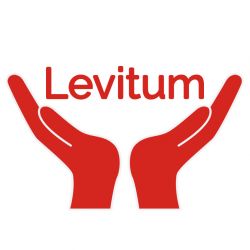Final Evaluation – ICPAL
ABOUT THE PROJECT
Lebanon has been facing multiple crisis since 2020; from socioeconomic deteriorations, to the COVID-19 pandemic, and the Beirut Blast. To cope, households have resorted to negative coping mechanisms which include: forced/early marriage of girls, children partaking in worst-forms of child labor, increase use of corporal punishment with children, and domestic abuse.
To address this, Levitum is implementing a 24-month project that targets vulnerable boys and girls in the governorates of Mount Lebanon and Baalbeck-Hermel. The project aims to respond to the educational and protection needs of 2,500 children. Caregivers, educators, and members of the community are also targeted through awareness raising sessions that will provide them with the skills required to ensure the protection and wellbeing of children.
RESULTS FRAMEWORK AND PROJECT OUTCOMES
General objective: Strengthen protection mechanisms for vulnerable children in Lebanon through an integrated educational approach
Specific objective: Respond to the protection needs of vulnerable children among refugee and host communities in Mount Lebanon and Bekaa by enhancing accessibility to quality education
- Outcome 1: Improve access of girls and boys not enrolled in school (preschool and school age) to the formal education system
- Outcome 2: Provide retention activities (homework support sessions) for vulnerable Lebanese and Syrian refugee girls and boys at risk of dropout
- Outcome 3: Raise awareness and improve knowledge of caregivers, community members, and school staff on child protection mechanisms
So far the project has reached 2,200 children and 1,150 caregivers, educators, and community members.
PURPOSE OF THE STUDY
The purpose of this consultancy is to conduct a final evaluation of the above project. The evaluation will assess the project performance towards achieving its mandated outputs and outcomes over the operational period. The review will explore the strengths and weaknesses of the project. It will highlight all factors influencing the effective and efficient implementation of the interventions and their contribution towards the realization of the programme outcomes and outputs. Based on the analysis it will draw conclusions regarding the outcomes and outputs. As such, the evaluation will also identify lessons learned, good and promising practices. It will then formulate recommendations for future projects.
The project will need to be evaluated by utilizing the OECD DAC criteria (relevance, effectiveness, efficiency, impact, coherence, sustainability), as well as inclusion.
In addition, the final evaluation will assess the following:
- To what extent did the programme achieve its objectives and the expected outcomes? Determine if the project has achieved its results and assess whether the outputs led to the expected outcome;
- The evaluation will assess the results and impact of the programme and validate the performance/results framework.
- Document challenges and lesson learnt, and outline key forward looking priorities to continue accelerating efforts to improve accessibility to quality education
- To what extent did the Programme achieve its overall objectives?
- Whether the project activities were appropriate for its context?
- To what extent there was coordination, coherence or complementarity with other UN- or (international) civil society organizations’?
EVALUATION METHODOLOGY
Levitum expects the study design to comprise the following:
- A desk review
- Mixed methods approach, using qualitative and quantitative research. At a minimum the following should be recommended:
- Key Informant Interviews
- Focus Group Discussions
- Survey
It will be the responsibility of the evaluation team to propose the methodology. Levitum will need to approve the methodology prior to data collection. The methodology should be participatory. The full participation of project beneficiaries, Levitum staff, partners, and community leaders / members is crucial to the successful outcome of the evaluation.
All data collected should at a minimum be disaggregated across gender, nationality, age, location, and disability.
1. Inception Report
To include:
- Detailed methodology
- Data collection tools
- Data collection plan
- Evaluation Report Outline
- - Detailed workplan with timeline
2. Data sets and tabulation of results including descriptive analysis, associations etc.
To be disaggregated across age, gender, nationality, location, and disability.
3. Draft and Final Evaluation Report
Should contain the following sections:
- Executive summary
- Methodology
- Main Finds across OECD-DAC Criteria
- Conclusion and Recommendations
- Annexes (Project LogFrame, study ToR, Inception Report, Study schedule, List of people involved)
ROLES AND RESPONSIBILITIES
The consultant will be in charge of finalizing logistical matters related to recruitment of enumerators and conducting data collection and data entry (i.e. tablets, papers, phones, chargers, etc.), coordinating the transportation to the different areas where data collection will be completed, calling selected participants for taking an appointment and securing consent from all participants.
QUALIFICATIONS AND SKILLS
Experience
- Past experience in similar assignments and production of evaluation reports based on OECD-DAC evaluation criteria
- Conducting studies in the field of Child Protection, Child Rights Governance, and Education
- Strong technical and analytical capacities and demonstrated knowledge of research methods and techniques for data collection and analysis,
- Conducting studies involving children and children’s participatory techniques
- Experience working within the local Lebanese context
General competencies
· Excellent communication and presentation skills and excellent report writing in English
· Displays cultural, gender, religion, and age sensitivity and adaptability;
· Ability to quickly adapt to change, and to remain calm under pressure; and
· Excellent analytical and report writing skills.
Qualifications
Post graduate degree/s in fields such as Development studies, Social Sciences, or other fields relevant to the assignment.
How to apply
Applicants are requested to submit their detailed application by email to Procurement@levitum.org with the subject line “Levitum – Final Evaluation ICPAL”.
The application must include the following:
- A technical proposal, including the outline of methodological approach and activities proposed to achieve the objectives, and a tentative timeline with key milestones.
- A financial proposal.
- CV/profiles of all involved consultants. It is recommended that the following be included:
- Team Leader / Lead Evaluator
- Field Coordinator
- Data Processing Manager
- References of previous similar work implemented.
The closing date for the submission of proposals is October 16, 2023.
منتهية الصلاحية